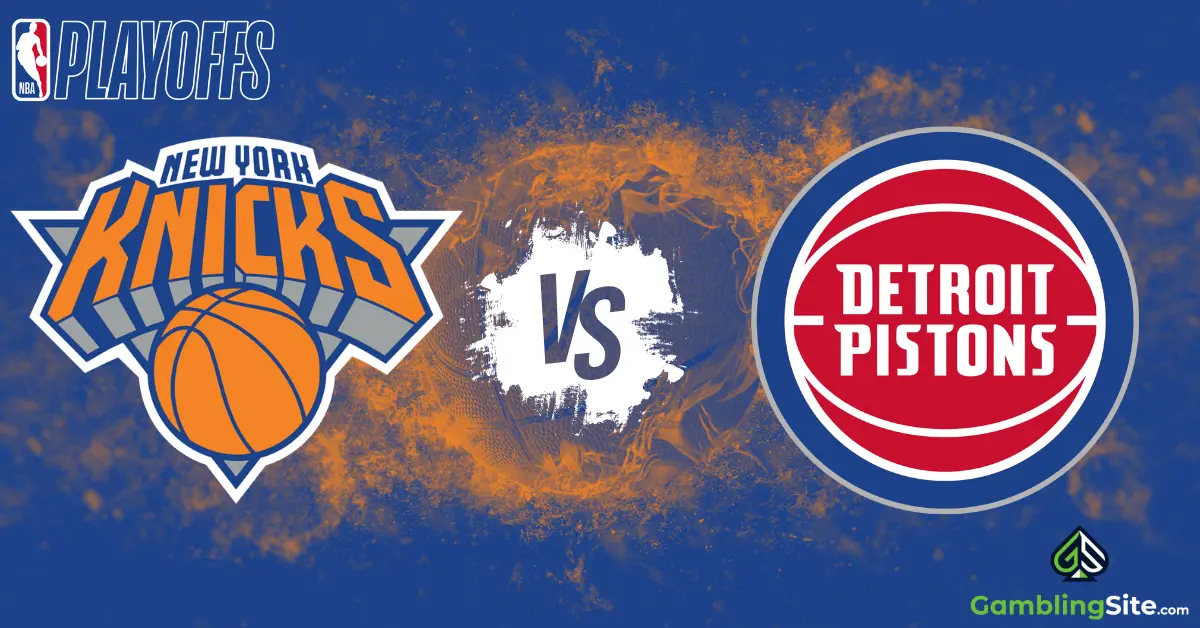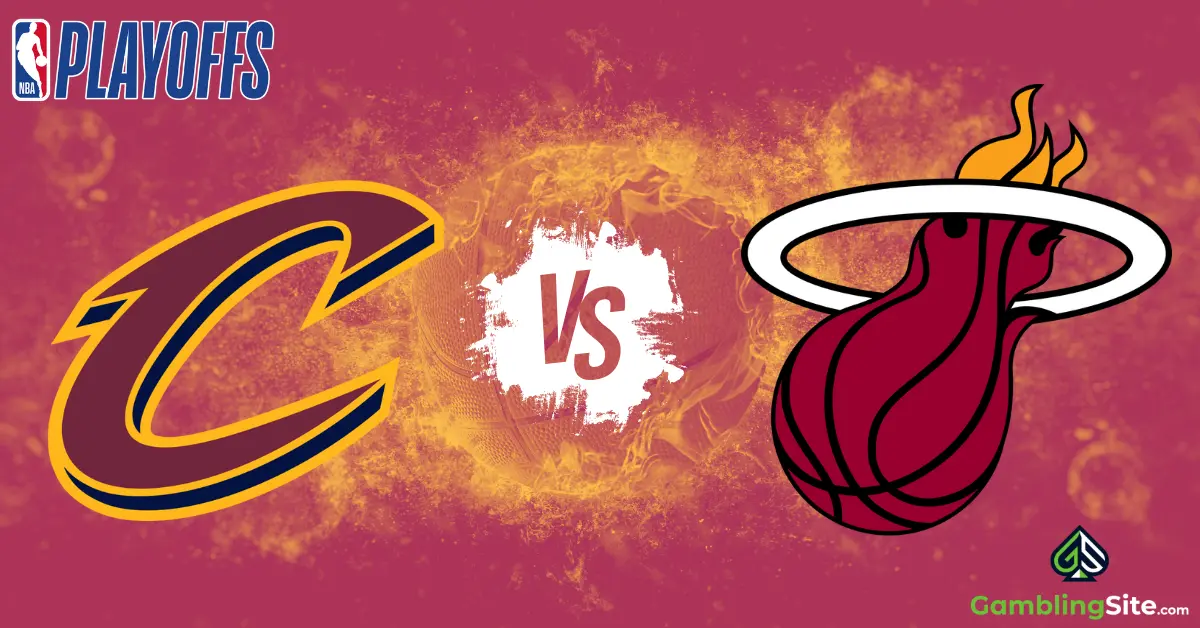The Most Dangerous Gambling Scams (And How to Spot Them)
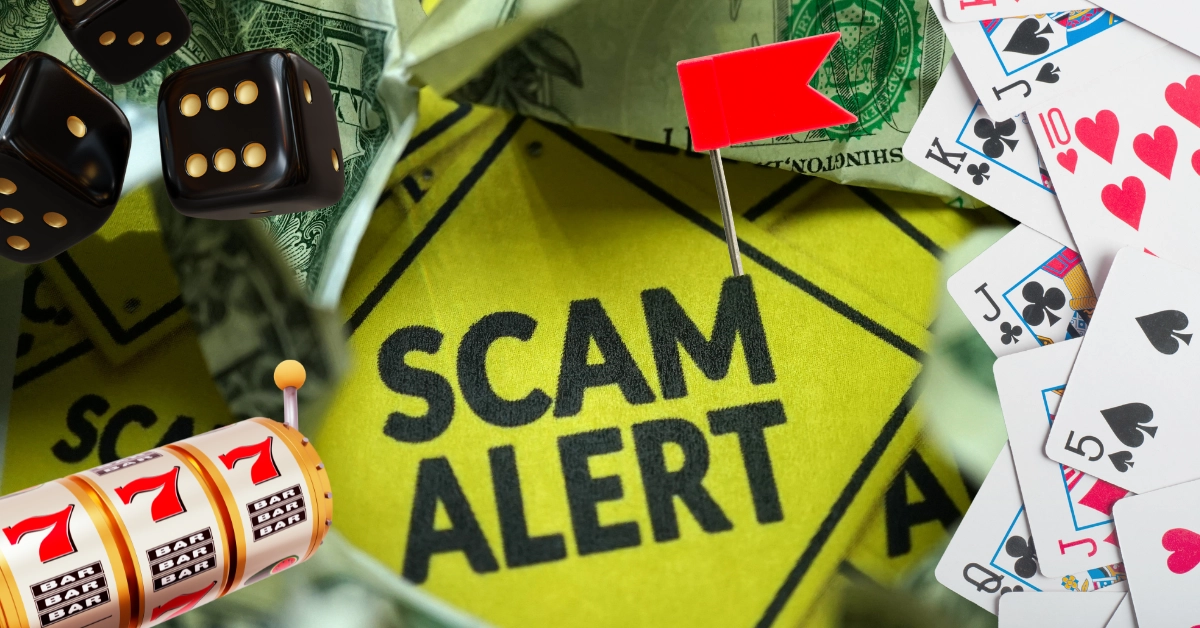
In 2024, online gambling scams drained over $1.4 billion from unsuspecting players worldwide—enough to buy 11 private islands in the Bahamas. That’s a lot of scenic real estate!
If you gamble online, you need to be hyper-aware of all of the scammers that are out there! Our guide isn’t just any old list of scams—in order to prepare our readers for what can happen, we are gonna go down the rabbit hole and look into the dark underbelly of online gambling. We’ll expose how fraudsters manipulate users’ psychology, technology, and the legal loopholes that they take advantage of so that they can exploit players. By the end, you’ll not only know how to spot the scams but how to dismantle the schemes before they affect your finances!
CTA: Please share this post—not for us, but for others. For every person who reads it, a scammer loses a potential victim!
The Rise of Gambling Scams
The global online gambling market is booming, and it is projected to hit $127 billion by 2027. But with this kind of explosive growth comes a lot of greed. Scammers are now exploiting the following:
- Cryptocurrency anonymity: 70% of scam casinos now demand crypto so that they are able to evade traceability.
- AI tools: Chatbots mimic customer support, and deepfake ads are getting scarily good at impersonating celebrities like Drake or Kevin Hart.
- Legal gray areas: Offshore casinos operate in jurisdictions that have weak regulations (e.g., Curaçao, Costa Rica).
Fear Factor
Even the most tech-savvy users aren’t immune and have fallen prey to scam gambling apps. A 2024 study found that 1 in 4 scam victims had cybersecurity training. Why do we risk it? Because scammers are getting smarter at taking advantage of our cognitive biases and using them against us:
- FOMO (Fear of Missing Out): “Limited-time bonuses!”
- Sunk Cost Fallacy: “I’ve already lost $5K—I have to win it back.”
Why This Matters
- Financial Ruin: The average victim loses about $15,000, which is a lot, but some high rollers have lost six figures.
- Emotional Toll: 45% of victims report suffering from anxiety, depression, or suicidal thoughts.
- Broken Trust: A lot of scam victims hide their losses out of shame or embarrassment—they will isolate themselves from loved ones.
Common Gambling Scams to Watch Out For
The digital age revolutionized gambling, turning living rooms into casinos and phones into slot machines. But with convenience came vulnerability. Scammers now operate like tech startups, and they are artists of manipulation, but their tricks do follow patterns. Leveraging cutting-edge tools to exploit trust and desperation. The following five scams, which are the most common, show how they’ve turned a fun, global pastime into a hunting ground for players.
1. Rigged Online Casinos
What is a rigged online casino? They are wolf-in-sheep’s-clothing gambling sites that closely mimic legit casinos but rig every single game to make sure that you never win—you will always lose.
How does it work? The scammers lure you in, manipulate the games, and then trap your money by doing the following:
Scammers execute this fraud in three calculated steps:

1. Bait: Professional sites with fake licensing seals (“Approved by the Malta Gaming Authority!”) and fabricated celebrity endorsements.
2. Switch: “Free play” modes use fair odds to build up trust, but the real-money games are programmed with RTPs (Return to Player) as low as 70% (legit games are 95%+).
3. Stall: Withdrawal requests trigger endless “verification” loops or accusations of “bonus abuse.”
Red Flags
You can suss out these gambling sites before you deposit a dime by clocking these warning signs:
- No clickable license links in the footer.
- Bonuses exceeding 200% (e.g., “500% up to $10,000!”).
- Glitchy games or delayed payouts.
2. Phishing Scams
Fake emails, texts, or ads that are impersonating trusted brands like DraftKings or PayPal are sent to steal your data.

How does this one work? Below is the anatomy of a phishing attack:
- Panic: Users will get messages in their inboxes that claim their account is “locked” or “under investigation.”
- Deception: Links lead users to cloned login pages (e.g., “DraftKinges.com”) that harvest their passwords.
- Theft: Stolen credentials will drain bank accounts or sell them for $50-$200 on the dark web.
Red Flags
Don’t fall for the tricks below:
- Slightly misspelled URLs (“FannDuel.com” instead of “FanDuel.com”).
- Threats that warn users of “Account closure in 24 hours!”
- Generic greetings (“Dear Customer” instead of your name).
3. Bonus Abuse Scams

Scam sites that are offering “$5,000 free chips!” but there is a big catch—they bury the predatory terms in the fine print. Here’s how these scams bait, trap, and ban players:
- Step 1: Lure: Pop-ups or ads promise “no deposit needed” bonuses.
- Step 2: Trap: Wagering requirements as high as 100x (e.g., bet $100,000 to withdraw $1,000).
- Step 3: Ban: Winners are accused of “bonus abuse” and then banned without payout.
Red Flags
Watch for the following telltale signs of this scam:
- Vague or missing bonus terms.
- Wagering requirements over 40x (legit sites: 20-35x).
- No live chat or any sort of responsive customer support.
4. Fake Gambling Apps
Not all gambling sites and apps are the same—some were made with the sole purpose of stealing your money—or worse, your personal data.
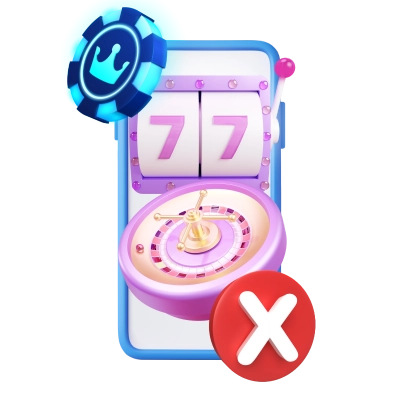
What It Is: Malware-infected apps on third-party stores that are made to steal money or data. Below is how these kinds of apps infiltrate your device and drain your wallet or bank account:
- Fake Reviews: Bots post 5-star reviews like “Best app ever!” In order to boost its visibility.
- Permission Abuse: Once the app is installed, the app requests access to contacts, photos, and SMS.
- Financial Theft: There are hidden subscriptions that charge $99/week via Apple Pay or Google Pay.
Red Flags
Look for the warning signs below before you download a gambling app:
- Low downloads (less than 1,000).
- Generic developer names like “CasinoGamesLLC.”
- Excessive permissions (e.g., a slots app asking for camera access—a gambling app does NOT need or want this access).
5. Payment Processor Fraud
Even if the casino seems like it’s legit, the payment processor might not be! Scammers use fake gateways to steal deposits or charge outrageous fees.
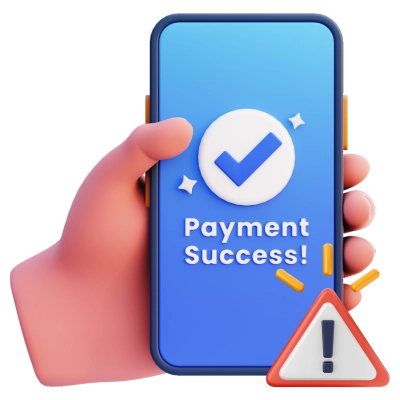
What It Is: Fake payment gateways that steal deposits or charge “processing fees” up to 50%.
Here’s how these scams siphon your money:
- Step 1: Redirect: After depositing, you’re sent to a fake processor like “EuroPay Solutions.”
- Step 2: Fee Scams: A $100 deposit becomes $50 after “currency conversion” or “security fees.”
- Step 3: Disappearance: Funds will never hit your casino account, and the processor seemingly vanishes into thin air.
Red Flags
Watch out for the following bright red flags:
- No reputable payment options (e.g., PayPal, Skrill).
- Shady or suss URLs like “Pay-globalsecure.net.”
- No customer support or contact details.
How to Spot and Avoid Gambling Scams
Scammers are really cunning, and they are getting better by the day, but if you know what to look for, their schemes crumble under scrutiny. Use our handy 10-step checklist to armor yourself against fraud.
Checklist for Safe Gambling
- Verify Licenses: Always check for a valid license from reputable regulators like the UK Gambling Commission (UKGC) or Malta Gaming Authority (MGA). Cross-check the license number on the regulator’s official website.
- Research the Site: Google “[Site Name] + Scam” to find user reviews and complaints on forums like Reddit or AskGamblers.Look for any patterns of withheld payouts or claims of rigged games.
- Test Customer Support: Ask specific questions like, “What’s your license number?” or “Can I see your terms?” If they are evasive or only give you vague answers, it’s a red flag.
- Avoid “Too-Good” Bonuses: Be super skeptical of bonuses like “500% up to $10,000.” Legit sites cap bonuses at 100-200%. Read the fine print for wagering requirements and withdrawal limits.
- Use Trusted Payment Methods: Only use reputable payment options like PayPal, Skrill, or Visa—they all offer fraud protection. Steer clear of direct bank transfers or obscure payment processors.
- Downloading Apps: Only download gambling apps from Google Play or Apple App Store. Don’t go to third-party stores—this is where the fake apps usually hang out.
- Enable Two-Factor Authentication (2FA): Add extra security to your accounts to prevent phishing hackers from getting access to them.
- Review Terms and Conditions: Search for keywords like “wagering,” “withdrawal limits,” and “forfeit” to understand the rules. If the terms are vague or hidden, do not engage.
- Avoid Unsolicited Ads: Never click on pop-ups or social media ads promising “exclusive bonuses.” Legit casino apps don’t need to spam you with offers.
- Trust Your Gut: If something feels off—whether it’s a glitchy site, pushy ads, or unresponsive support—get the heck outta there!
Bookmark our checklist. Print it out and tape it to your monitor until you’ve memorized it. Why? Because Scammers like suckers—they don’t like prepared players.
What to Do If You’ve Been Scammed
If you have been the victim of a gambling scam, time is of the essence! Follow the steps below so that you can minimize the damage—and fight back.
Immediate Actions
If you have been scammed, you should do the following things immediately:
- Freeze Your Accounts: The first and most important step is to contact your banking institution or credit card and tell them you’ve been scammed—they will then block any future transactions. If you use crypto, you should transfer your funds to a new wallet.
- Report it to Regulators: File complaints with eCOGRA, the FTC, or your local gambling commission.
- Gather Your Evidence: Screenshot all conversations, transaction IDs, and terms. You can use tools like Snagit to document everything.
- Alert Law Enforcement: Submit a report to the Internet Crime Complaint Center (IC3) or Action Fraud (UK).
Recovery Resources
Do you have any recourse for getting your money back? Yes, you do!
- Chargebacks: You can dispute any unauthorized charges with your bank if it’s within 60 days of the fraud.
- Crypto Recovery: There are firms like CipherTrace or Chainalysis that trace stolen crypto (you’ll have to pay a fee).
- Support Groups: As far as getting emotional support after you’ve been scammed, there are lots of places—for instance, Gamblers Anonymous (1-888-426-2539) offers free counseling. They can’t help you get your money back, but they can help by lending a sympathetic ear.
Long-Term Steps
You’ve done what you can do at the moment, but you should also think about long-term actions so that the scammers can’t get access to your funds or personal info again.
- Credit Freeze: Request a credit freeze from the credit bureaus (Equifax and TransUnion) so that scammers won’t be able to open new accounts or credit lines in your name.
- Password Reset: Change all of your passwords—every single one.
True Stories of Gambling Scams
Behind every scamming statistic is a real human story, so we thought we’d relay 10 survivors’ accounts. It shows both the emotional and financial devastation of being scammed—and some of the lessons that saved them.
The Rigged Roulette Trap: “I deposited $5,000 at ‘Royal Vegas 2.0.’ The roulette ball landed on red 15 times in a row. When I asked for proof of fairness, they blocked me. I lost my house.”
— Jake T., Ohio | Loss: $12,300
The Phishing Text That Broke a Family: “A text claiming to be from BetMGM said I won $10,000. I clicked the link, and they emptied my savings. My wife left me. I’ll never trust anyone again.”
— Anonymous | Loss: $87,000
The Bonus That Never Was: “‘Get $3,000 FREE!’ turned into an actual nightmare. I wagered $300K but I couldn’t withdraw a dime. Why? They said I violated terms that I never agreed to.”
— Maria L., Spain | Loss: $15,000
The Fake App That Stole a Life: “I downloaded an app called ‘Poker Master’ from a Facebook ad. It locked my phone until I paid $1,200 in Bitcoin. I’m still paying off the debt.”
— Rahul P., India | Loss: $1,200
The Processor That Vanished: “I used ‘QuickPayz’ to deposit $1,000. The casino never received it, and QuickPayz disappeared. I felt so stupid.”
— Sarah K., Australia | Loss: $2,500
The Crypto Casino Catastrophe: “I invested $50,000 in a ‘blockchain casino’ that promised daily returns. After two weeks, the site shut down. The founders are still anonymous and my money went with them.”
— Mark R., Canada | Loss: $50,000
The Social Media Scam: “A TikTok ad showed an influencer winning $10K on a slot app. I downloaded it, deposited $500, and watched my balance hit $15K—but withdrawals were blocked. Guess what? Surprise! The app vanished a week later.”
— Emily S., UK | Loss: $500
The Affiliate Fraud: “I joined a ‘VIP gambling affiliate program’ that promised me 50% commissions. They used my referrals to launder money—and I became a suspect in their scheme.”
— Carlos M., Brazil | Loss: Legal fees and criminal charges
The Romance Scam Double-Cross: “I met someone on a dating app who ‘worked in crypto gambling.’ They convinced me to invest $20K in their ‘guaranteed win’ system. Once I sent the money, they ghosted me.”
— Linda H., New Zealand | Loss: $20,000
The Live Dealer Deception: “A live dealer blackjack site used delayed streams to manipulate outcomes. I lost $8K before realizing the dealer wasn’t live—it was a pre-recorded video.”
— Tom W., Germany | Loss: $8,000
What can we learn from the stories of people who were scammed? A lot, actually, but two things stand out:
- Verify Everything: Assume every offer you get is a scam until proven otherwise—you won’t go wrong with that strategy.
- Talk about It: Shame keeps victims silent—sharing breaks that cycle and brings awareness to others. If someone knows about a scam, they’ll be warier, and that’s a good thing to be in this day and age!
Conclusion: Safe & Scam-Proof
Gambling scams prey on all of our best instincts—hope, trust, and the excitement of a win. But behind the too-good-to-be-true promises is a really harsh truth: the only guaranteed winner in these scenarios is the scammer. You’re not naive or dumb if it happens to you, and we aren’t telling you these things to scare you—we want to empower you! Because every red flag you notice, every license that you question, and every skeptical Google search makes it harder for someone to scam you.
The Importance of Vigilance
- Scammers Exploit Hope: These criminals prey on your desire to win—they know humans are drawn to too-good-to-be-true bonuses and promises.
- Financial Ruin: The average victim loses $15,000, but the high rollers? They have lost six figures or more.
- Emotional Toll: Scams cause anxiety, depression, and even suicidal thoughts for a lot of victims.
- Broken Trust: A lot of victims hide that they’ve been scammed because they feel shame or embarrassment, and that can result in them isolating themselves from their loved ones.
- Global Reach: Scammers operate across borders, which makes it that much harder for authorities to track them down and prosecute them.
This is really important, so we are going to circle back and recap the steps that you need to take to stay safe when you gamble online!
- Verify Licenses
- Google “[Site Name] + Scam”
- Test Customer Support
- Avoid “Too-Good” Bonuses
- Use Trusted Payment Methods
- Check App Stores
- Enable Two-Factor Authentication (2FA)
- Review Terms and Conditions
- Avoid Unsolicited Ads
- Trust Your Gut
What to Do If You’ve Been Scammed
- Immediate Actions: Freeze Your Accounts: Contact your bank to block transactions. For crypto, transfer funds to a new wallet.
- Report to Regulators: File complaints with eCOGRA, the FTC, or your local gambling commission.
- Gather Evidence: Screenshot conversations, transaction IDs, and terms. Use tools like Snagit for documentation.
- Alert Law Enforcement: Submit a report to the Internet Crime Complaint Center (IC3) or Action Fraud (UK).

Long-Term Recovery
- Credit Freeze: Lock down your credit reports via Experian or TransUnion.
- Password Reset: Change passwords for all gambling and financial accounts.
- Get Support: Contact Gamblers Anonymous (1-888-426-2539) for free, judgment-free support.
Knowledge Is Your Best Defense
- You Hold the Power: Scammers are relying on ignorance, and when you know their tactics, you are taking away their biggest weapon in their arsenal—deception.
- Awareness = Protection: Recognizing red flags like rigged games, phishing links, or impossible bonus terms turns you from a mark into a “you can’t fool me!”
- Confidence Over Fear: When you have the correct knowledge, you are able to gamble with way more clarity.
A lot of victims suffer in silence—if you share your experience, you could just give someone the courage to speak up. After all, awareness is contagious. The more that people know? The harder the scammers will have to work.
If you’ve been a victim of a gambling scam and are up to talking about it, we’d like to hear from you. You can comment or contact us privately via email!

Alyssa contributes sportsbook/online casino reviews, but she also stays on top of any industry news, precisely that of the sports betting market. She’s been an avid sports bettor for many years and has experienced success in growing her bankroll by striking when the iron was hot. In particular, she loves betting on football and basketball at the professional and college levels.





